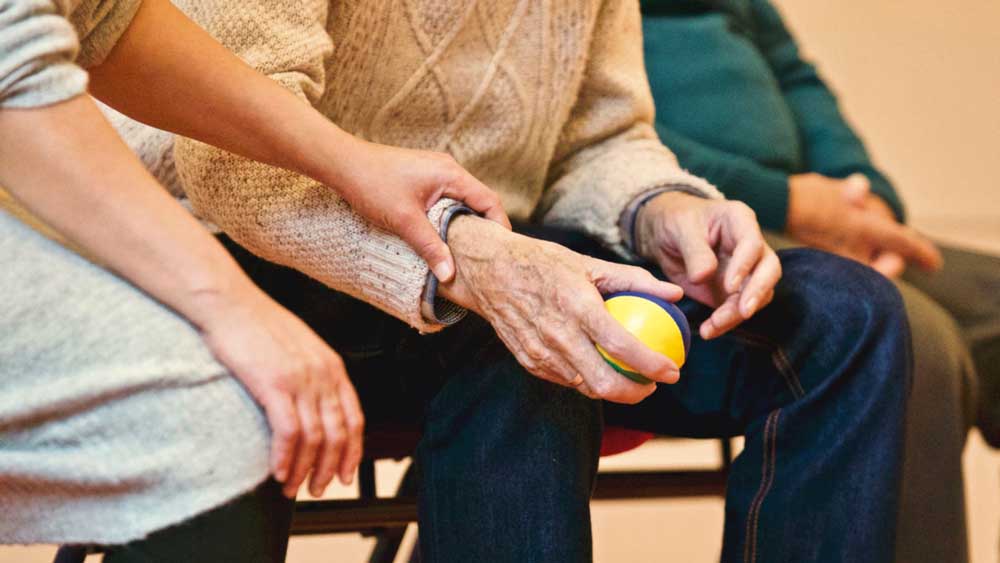Two key focuses of my blog are Current Events and Health/Wellness. As our world is dealing with the Coronavirus/Covid-19 Pandemic, people are being asked to practice “Social Distancing” and self-isolation. These new Coronavirus strategies aren’t necessarily healthy for people who are self-isolating even though they are necessary. The following contributed post is entitled, Practical Tips For Supporting Vulnerable People Who Are Self-Isolating.
* * *
We live in scary and uncertain times. The coronavirus will have far-reaching effects not just for our healthcare system but for the global economy and business to say nothing of the potential long-term sociological effects. Yet, for those of us who make a living from caring for society’s most vulnerable, or those of us who care for elderly or infirm loved ones, our thoughts turn not to ourselves, but to those who rely on us. If you care for someone who is self-isolated, elderly or sick with a compromised immune system, whether you’re a medical professional or just a loving relative, here are some practical tips for protecting our most vulnerable and isolated in this difficult time.

Image by Matthias Zomer via Pexels
Encourage healthy eating
Those who are isolated tend to be less inclined to cook for themselves. Moreover, those who are in a state of stress or anxiety may experience a dramatic decline in appetite. At best, vulnerable people may sustain themselves with a variety of highly processed sugary, fatty or salty convenience foods. At worst they may eat nothing at all.
It’s essential to encourage, or even facilitate, healthy eating. Ensure that they eat a diet that is balanced with a good nutrient to calorie ratio. Make sure they have access to as much fresh fruit and veggies as possible. Not only is fresh produce packed with vitamins, minerals, fiber and protein, it also contains phytonutrients which are believed to support immune function.
Plus, let’s not forget, food is a source of enjoyment as well as fuel for our bodies. Sharing delicious home cooked meals can make a huge difference to someone’s day.
Encourage them to wash their hands properly
We all know how important hand washing is in the current climate. As much as people seem to think that stockpiling alcoholic hand sanitizer will insulate them from the risk of coronavirus, there’s really no substitute for good old fashioned soap and water. In fact, the very act of washing your hands literally tears viruses apart. Viruses come packaged in a wall of fats and proteins. Soaps dissolve the bonds that hold viral cells together so when you wash your hands, you’re not just washing them down the drain, you’re wiping them out.
However, our charges who experience diminished cognitive functions or neurological impediments such as dementia may not be willing or able to wash their hands regularly. Where possible, it’s vital to ensure that they understand and use the proper hand washing technique. Medical professionals will already be well aware of this but family carers can check it out here. Where it’s not possible to educate your charge on proper hand washing technique, it’s up to you to ensure that their hands are clean especially before eating.
Ensure that they are continuously monitored
As hard and as diligently as you work to protect the person or people you care for, it’s okay to admit that you’re only human. Fortunately, technology can lend a helping hand to monitor charges even when you’re not on the premises. Continuous EEG monitoring equipment is appropriate both for home and hospital use. It offers real time monitoring of brain activity 24/7 to give carers peace of mind and inform ongoing therapy options. It can track seizure activity, provide a steady stream of data for review by your charge’s doctor or specialist physician and help medical professionals to make fast and effective decisions pertaining to therapies or drug treatments.
Help them feel cared for and supported
We’ve yet to encounter the true sociological cost of self-isolation. As friends and family members become separated from one another and married couples experience potential cabin fever that can put a strain on their relationship, we can expect to see some serious social fallout as a result of the coronavirus. However, for the people in your care, it may compound their existing feelings of isolation and vulnerability. The elderly and infirm are among the most isolated in our society and the most prone to anxiety, depression and even suicidal thoughts.
As such, perhaps one of the most important things medical professionals and family members can do is be there for our charges socially. Keep them chatting, let them know you’re available. Ask how they’re feeling and encourage them to share their thoughts and experiences with you.
Your emotional support, compassion and availability may be just as lifesaving as your health and hygiene precautions or the medication you administer.
This current pandemic can exacerbate the sense of isolation felt by the isolated and make them even more vulnerable. In this climate, the support you lend them is more important than ever!
